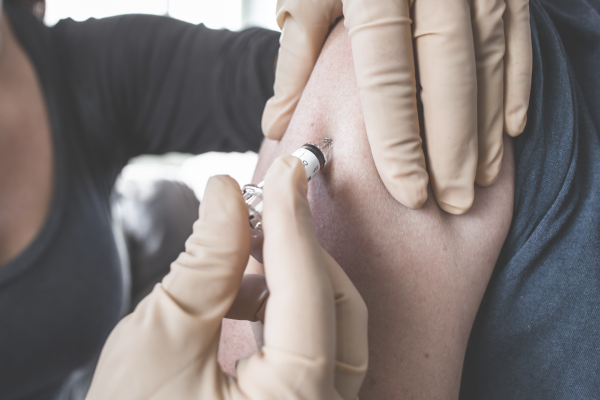When it comes to managing your team and the COVID vaccination, it’s important for business owners and managers to stay informed regarding their rights and obligations surrounding the leave entitlements of their workers.
Full-time, part-time and casual workers – who can use paid sick leave to get their COVID shot?
Leave entitlements differ for each employee depending on their employment type. Full-time and part-time workers are entitled to paid sick leave under the National Employment Standards (NES). However, the NES states that sick leave can only be accessed when a worker is unable to do their job due to illness or injury, so managers are under no obligation to approve paid sick leave in order for an employee to have the COVID shot.
Managers can discuss alternative options with team members if they want to take time off in order to receive the vaccination such as:

- Taking annual or unpaid leave instead.
- Working a shorter day to attend an appointment at the start or end of the day.
- Working from home to attend an appointment locally.
- Having an extended lunch break to attend an appointment nearby work.
Another consideration is whether or not a full-time or part-time employee has enough sick leave to access a paid sick day. If they don’t, they aren’t entitled to paid sick leave however it is at the discrepancy of the employer whether they allow an employee to take paid sick leave in advance.
Different employment agreements and contracts may include different rules surrounding sick leave entitlements so it’s important to check each employee’s specific entitlements.
Under the NES, casual employees are not entitled to paid sick leave and therefore cannot access paid sick leave in order to receive the COVID vaccination.
What about other types of paid leave? Can employees use their annual leave to get the vaccination?
Full-time and part-time employees are entitled to paid annual leave under the NES, just as they are sick leave. Unlike sick leave though, they can choose to access their annual leave in order to take time off work to get the COVID vaccination. Provided an employee has enough annual leave accrued and has followed company policy when applying for leave, they are entitled to use that time off from work to receive the COVID shot.
As with taking sick leave in advance, it is up to the employer whether they allow a worker who does not have enough annual leave accrued to take it in advance. Managers are under no obligation to do so and can require an employee who does not have enough leave accrued to take unpaid leave instead.
Under the NES, casual employees are not entitled to paid annual leave and therefore cannot access paid annual leave in order to receive the COVID vaccination.
An employee becomes unwell after receiving the COVID shot – what type of leave can they take leave?
If a full-time or part-time employee becomes unwell after they receive the COVID vaccination, they are entitled to take paid sick leave under the NES provided they:
- Have enough sick leave accrued.
- Have followed company policy in relation to notifying their manager.
- Provide reasonable evidence that they are unwell such as a medical certificate, if required.
If a full-time or part-time employee does not have enough sick leave accrued and becomes unwell, an employer can allow the worker to take paid sick leave in advance, but is under no obligation to do so. Alternative arrangements such as taking paid annual leave or unpaid leave can be discussed between the parties.
Under the NES, casual employees are not entitled to paid sick or annual leave so if a casual employee becomes unwell after receiving the COVID shot, they will need to take unpaid leave.
As the COVID vaccination is not mandatory, managers should approach leave applications from workers in order to receive the COVID vaccination as they would any other leave request. Employers should also provide workers with clear and consistent information outlining company policy for employees who receive the COVID vaccination and their leave entitlements; this will help to prevent confusion or misinformation from circulating amongst the team.
Find our articles helpful? Remember to follow us on Facebook, Instagram or LinkedIn to keep up to date with our practical tips and information for business owners and managers.

